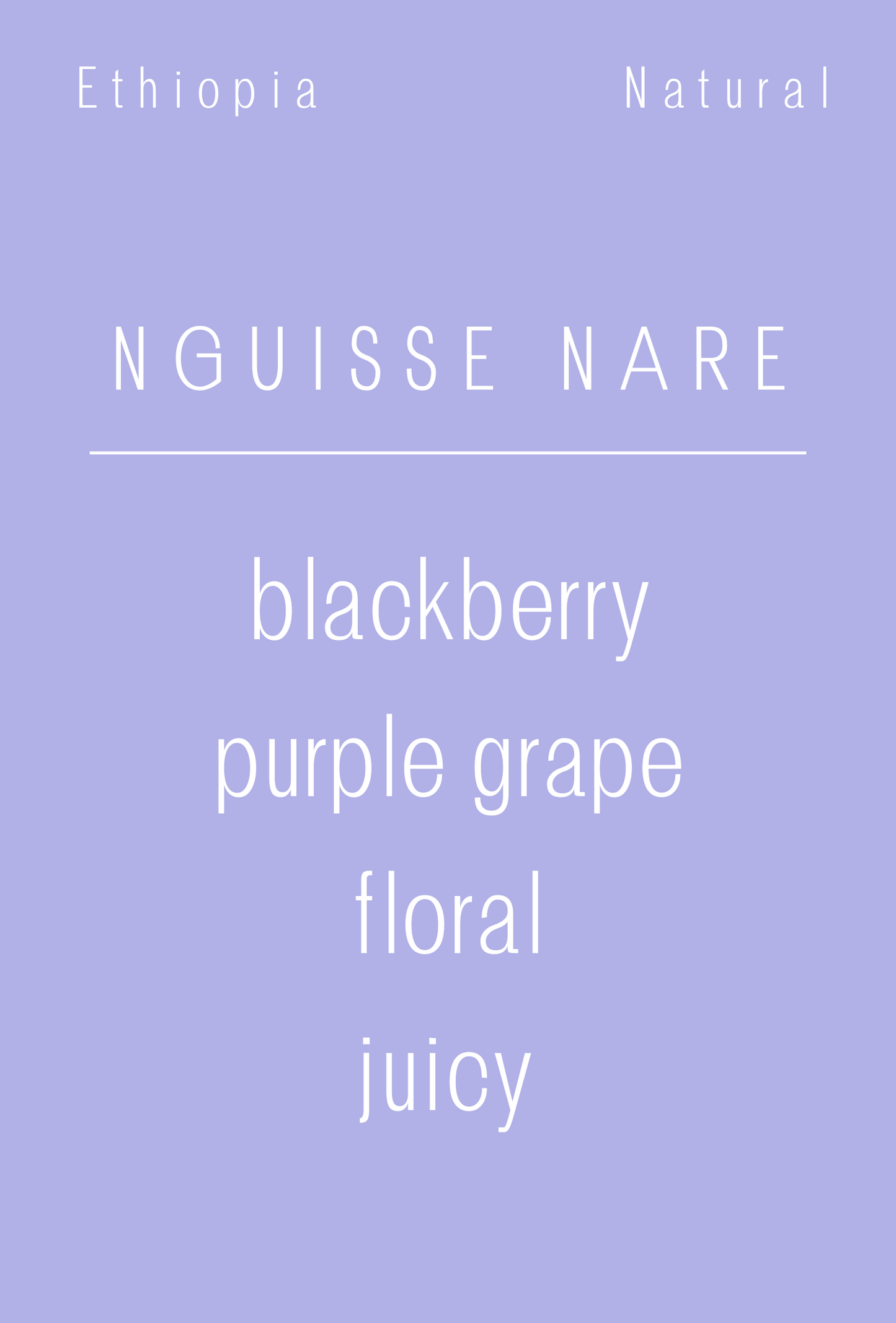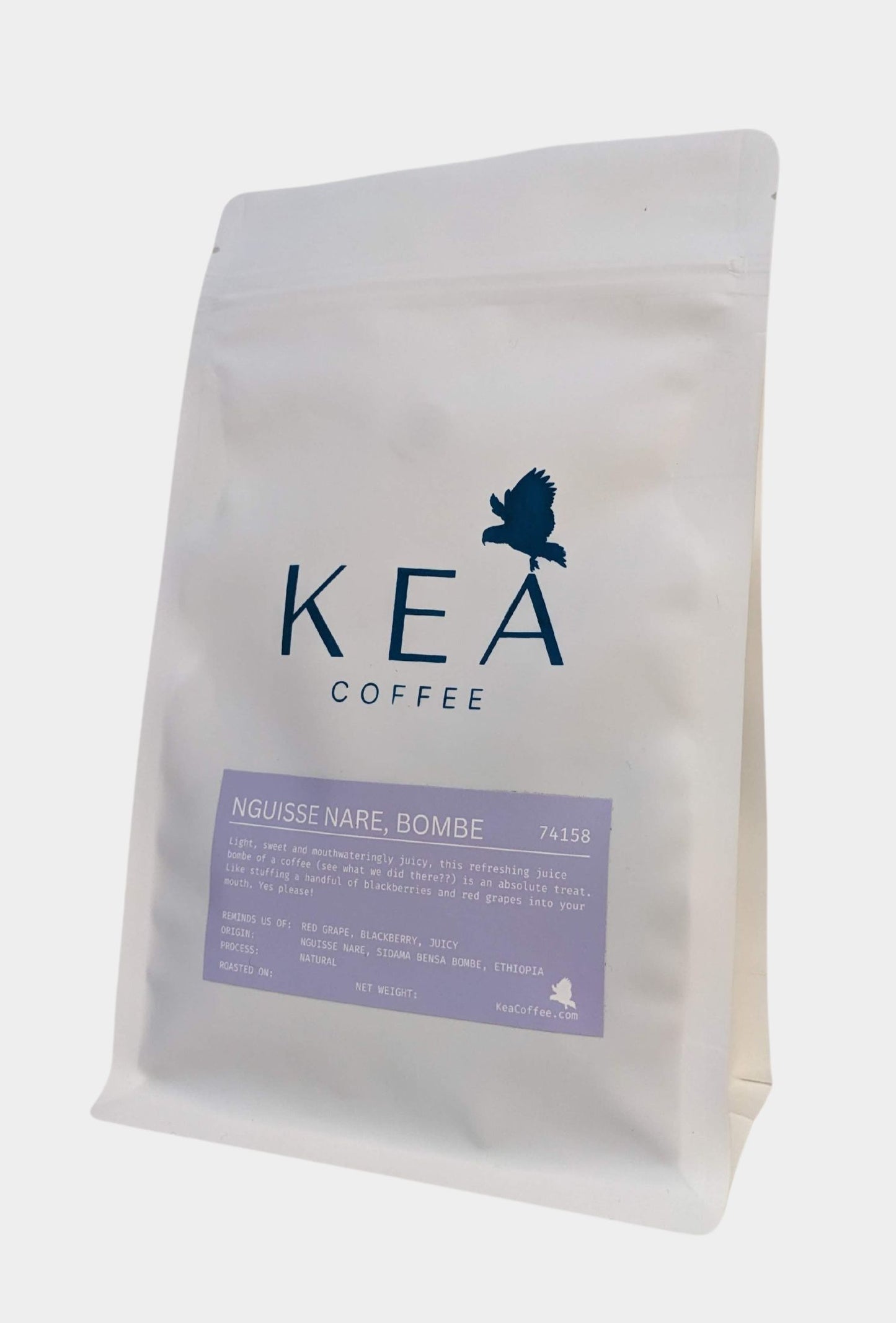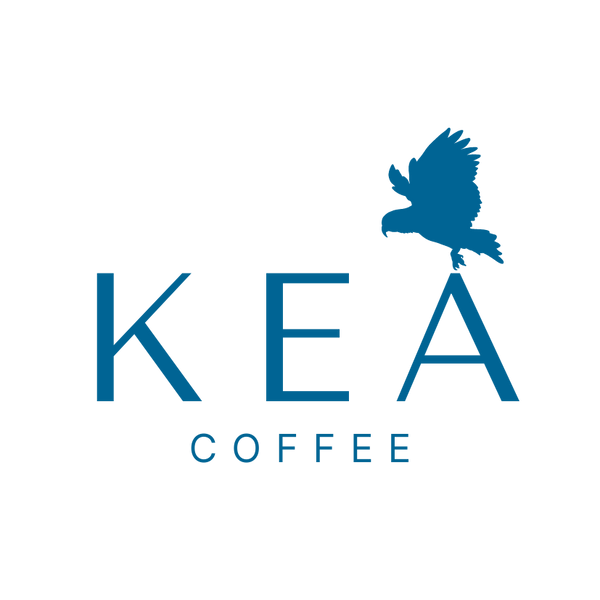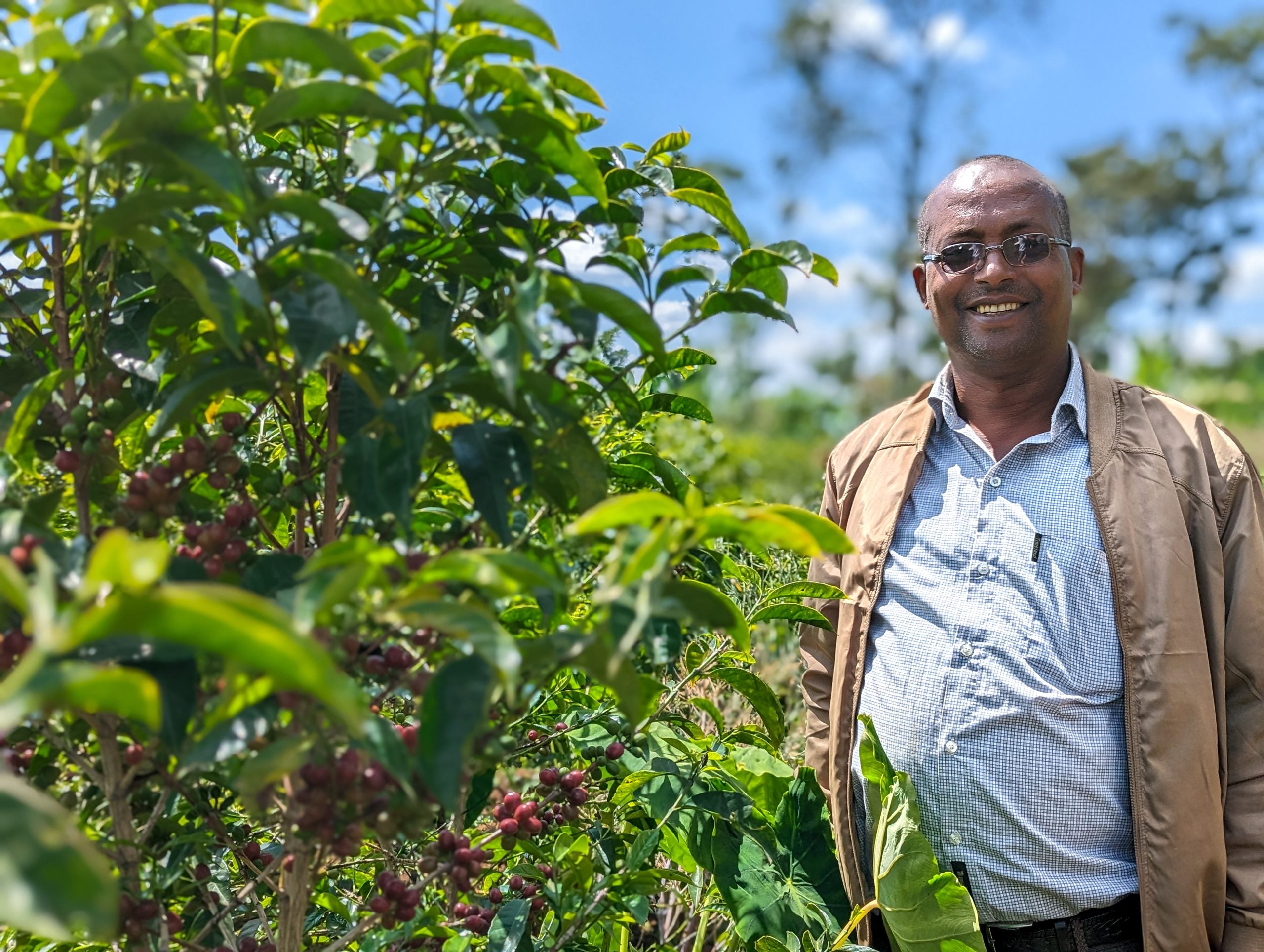
Farm Stories: Setame, by Nguisse Nare
In our regular Farm Stories series, we take a deep dive into the story behind the farm, and farmers, who produce the great coffees that we get to roast and share with you all.
Before We Dive In...A Quick Intro To Sidama Coffee
We'll dive into Nguisse's story more in a few minutes.
Before we do that though, it might be helpful to have a quick chat about the region of Ethiopia where Nguisse's farms are located: Sidama.
Sidama is probably one of the most well known coffee growing regions in Ethiopia - right after Yirgacheffe and up there with the likes of Harar and Giji.
This is prime coffee growing territory: think lush, fertile highlands, 1,500 - 2,200 meter elevations, cool temperatures and predictable rainfall.
There's a lot of variety in cup profiles all around Sidama, and the region is actually split further into 36 different districts. One of those districts is Bensa, where Nguisse has a farm called Setame. He also has 2 other farms here, one in the Kokose district and one in Tiburo.
For a long time, Sidama (also sometimes referred to as Sidamo) only really produced washed coffees.
As we'll see in a moment, the farmer at the center of todays Farm Story, Nguisse Nare, is part of a small group of dedicated producers who are committed to changing that. Their goal is to continually improve the regions natural processing methods and raise the bar for coffee quality for traceable, high quality natural lots from across Sidama.
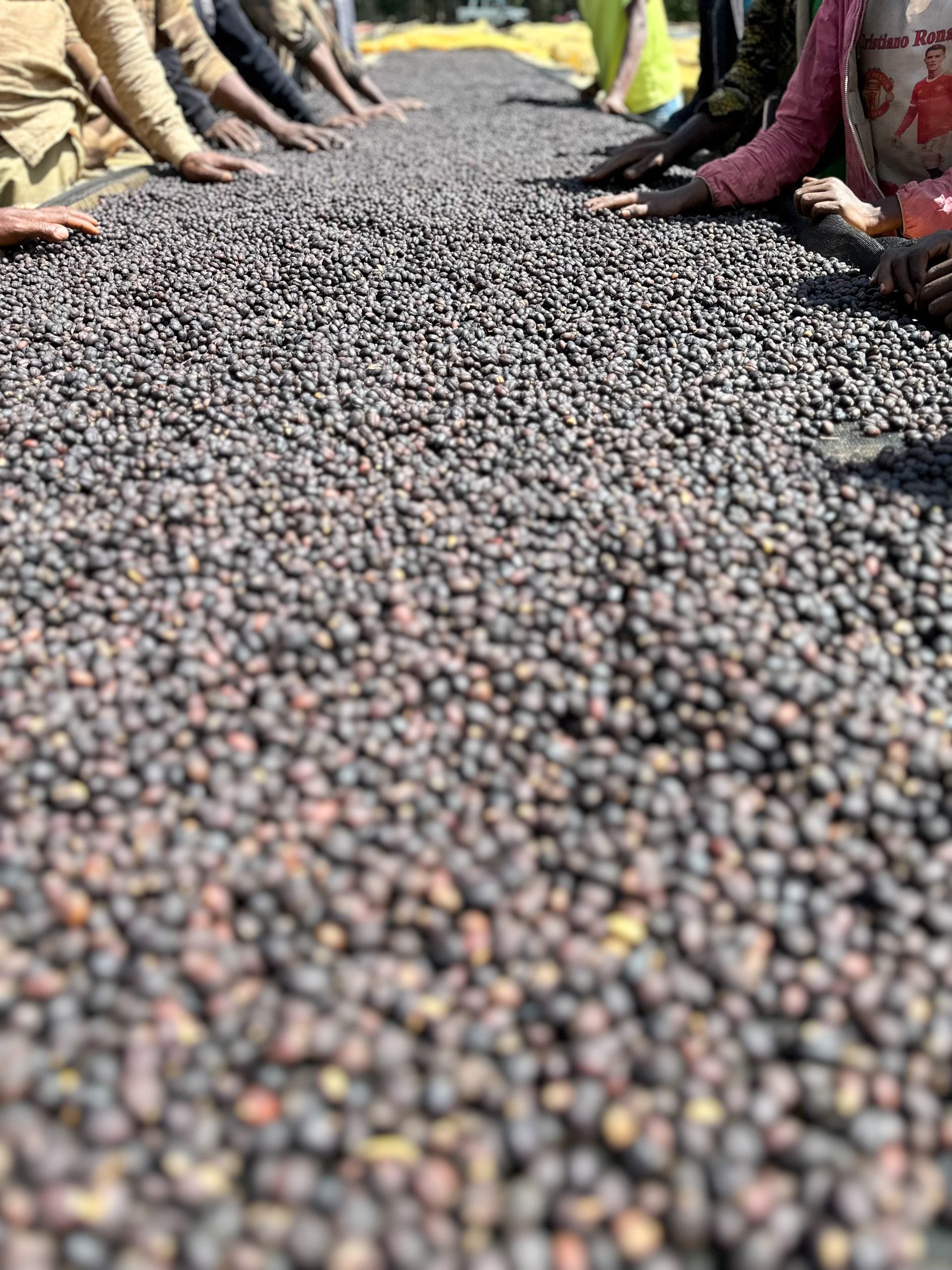
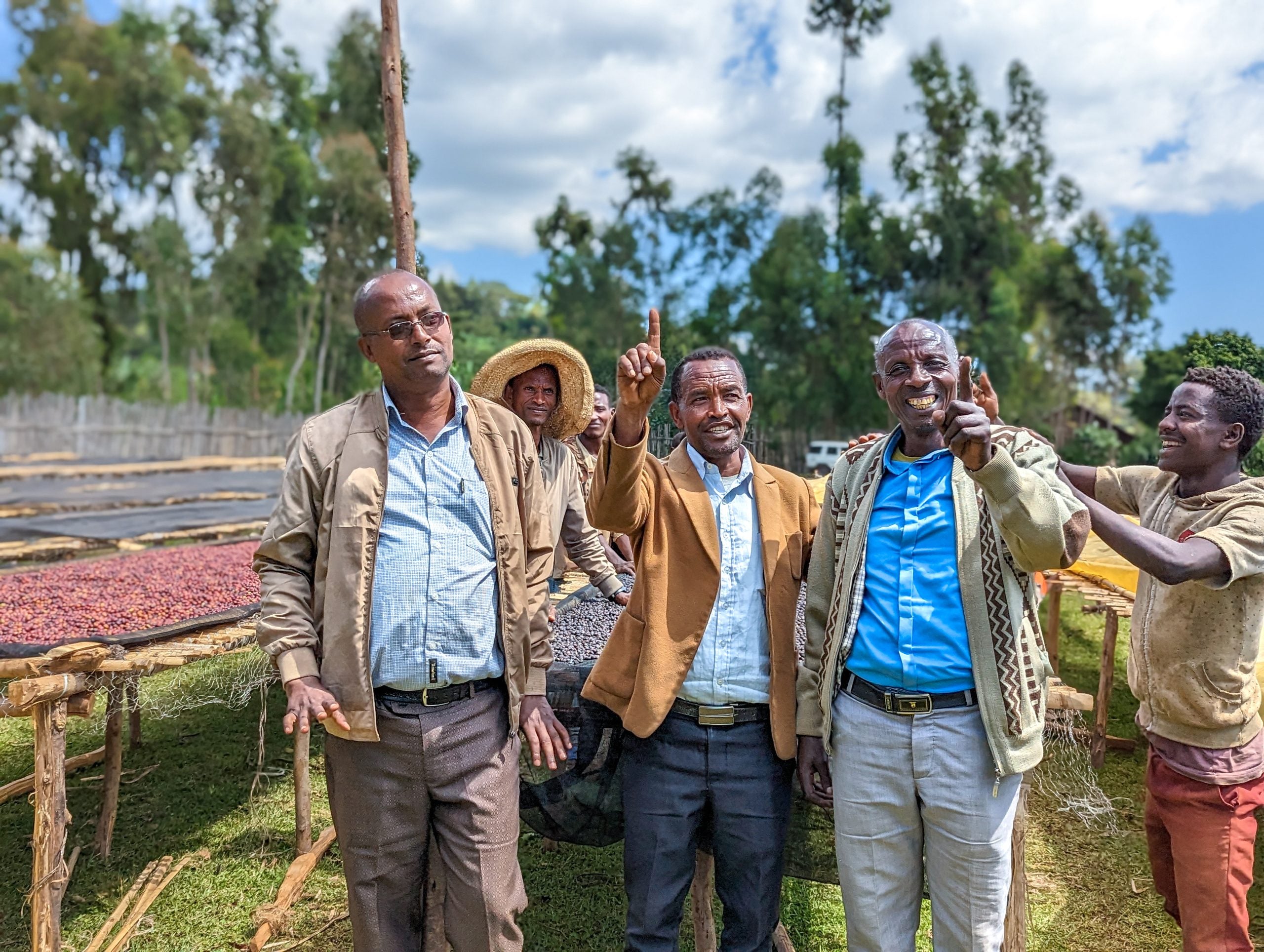
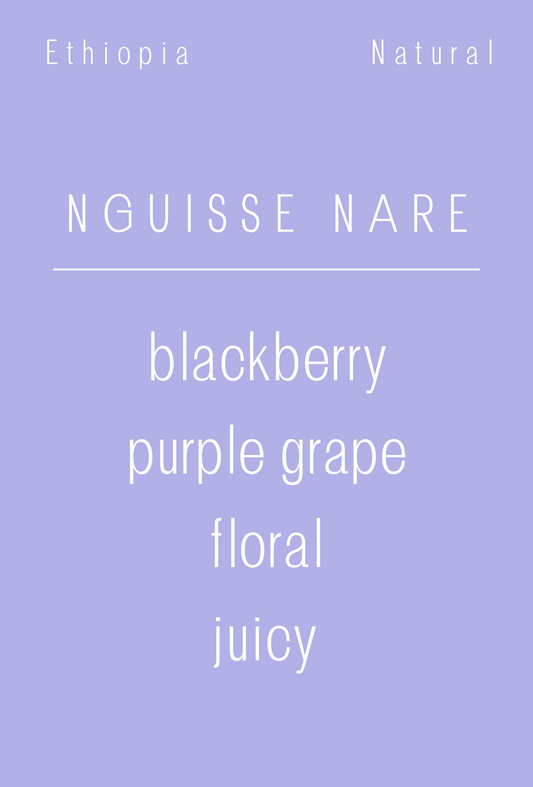
Ethiopia - Nguisse Nare | Natural
How Nguisse Nare Is Helping To Take Natural Sidama Coffees To New Levels
Nguisse Nare is part of a small number of outstanding single origin producers in Sidama who are working along side Ethiopian coffee legend Asnake Bekele.
Asnake was the visionary who first convinced the Sidama Coffee Farmers Cooperative Union to build a raised bed drying station and try out natural processing alongside their traditional washed coffees for the first time.
At the time, he was laughed at.
But, thanks to Asnake and his perseverance, we all now get to experience the joy of natural processed Sidamas.
Nguisse Nare is one of the select group of producers working along side Asnake and his team to consistantly improve natural processing and harvesting processes for traceable single origin lots.
Asnake shares that on Negusse’s farm in Bensa, “Red Cherries are harvested by hand-picking. This is very labor-intensive, and around 75 seasonal and daily laborers are employed for selective harvesting, transporting, sorting, and drying. Pickers many a time have to return to the same tree multiple times as coffee cherry doesn’t ripen all at the same time. Carefully harvested cherries are then are loaded into bags or baskets and taken to the drying location. The cherries are spread out in thin layers to dry in the sun. Only special raised drying beds or tables, which are made out of wood posts, are used and covered in a bamboo mat. In order to ensure even drying and to avoid mold, fermentation, or rotting, the cherries are turned 6 times per day. It could take 15 – 21 days for specific lots to reach optimum moisture content depending on the sun access and temperature. This is determined by observing the brightness of the skin and cracking sample dried cherries by teeth. When the drying is complete, the dried cherries are loaded into poly bags and stored in a temporary warehouse. It will then ultimately be transported to the dry mill and warehouse located at Daye town.”
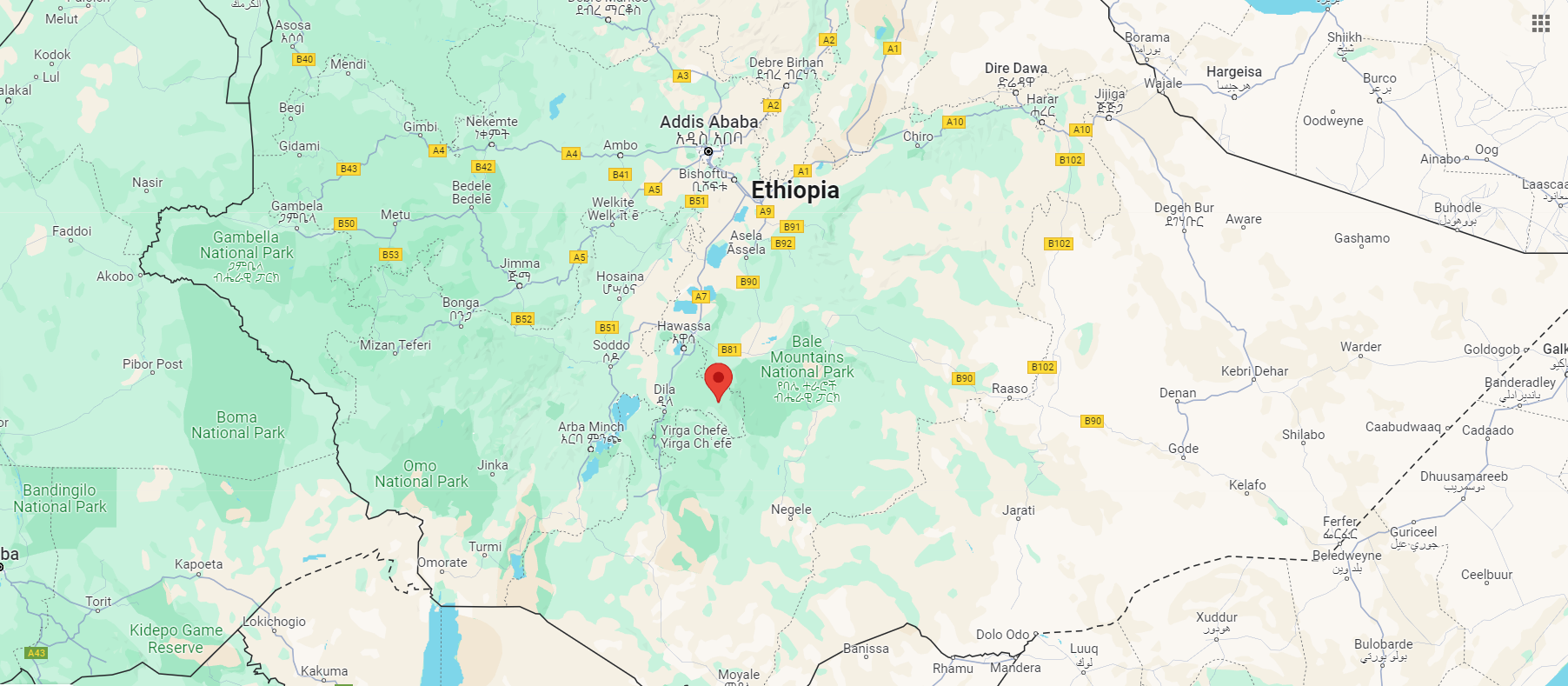
Setame
Setame - Nguisse's farm in Bensa, Sidama, is focused on producing high quality, fully traceable single origin lots that lift the bar for Ethiopian coffee quality.
Sitting atop a ridge at 2300 MASL in Bombe, Nguisse Nare’s 10 hectare farm “Setame” is planted with variety 74158 intercropped with taro and sweet potato.
With his two other farms—one in Kokose, one in Tiburo—he produces natural and anaerobic coffees using his own cherry as well as cherry collected from around 60 of his neighbors.
Nguisse bought the farm four years ago, with a strict focus on quality. The Setame farm also has its own drying station, allowing Nguisse to retain more control over the whole process post harvest.
He floats his cherry before drying them slowly on raised beds over 20 days.
Thomas Tosha is the farm manager at Setame, as works closely with Demisse Turuma, the Industry Manager (the term of choice for the resident postharvest processing expert).
We were lucky enough to get our hands on a small quantity of coffee from a recent Setame harvest that's been a joy to roast and brew.
Super juicy and sweet, with some hints of florals and even stone fruits poking through at the finish.
We'll leave a link to it below here if you want to check it out more, but please keep in mind we only have a limited quantity available. Once it's gone, it's gone.
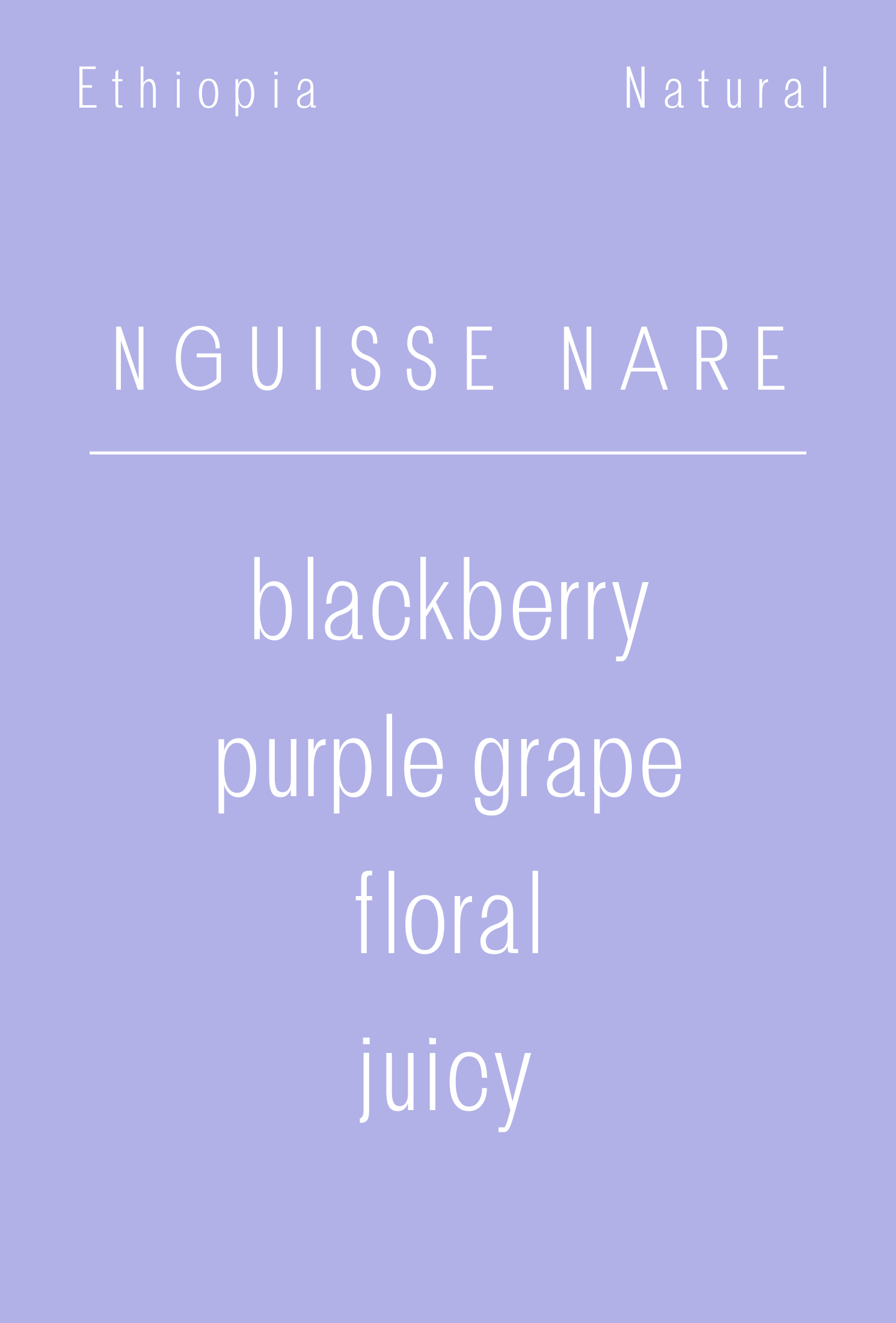
Natural | Ethiopia
Ethiopia - Nguisse Nare | Natural
Blackberry ~ Purple Grape ~ Juicey
